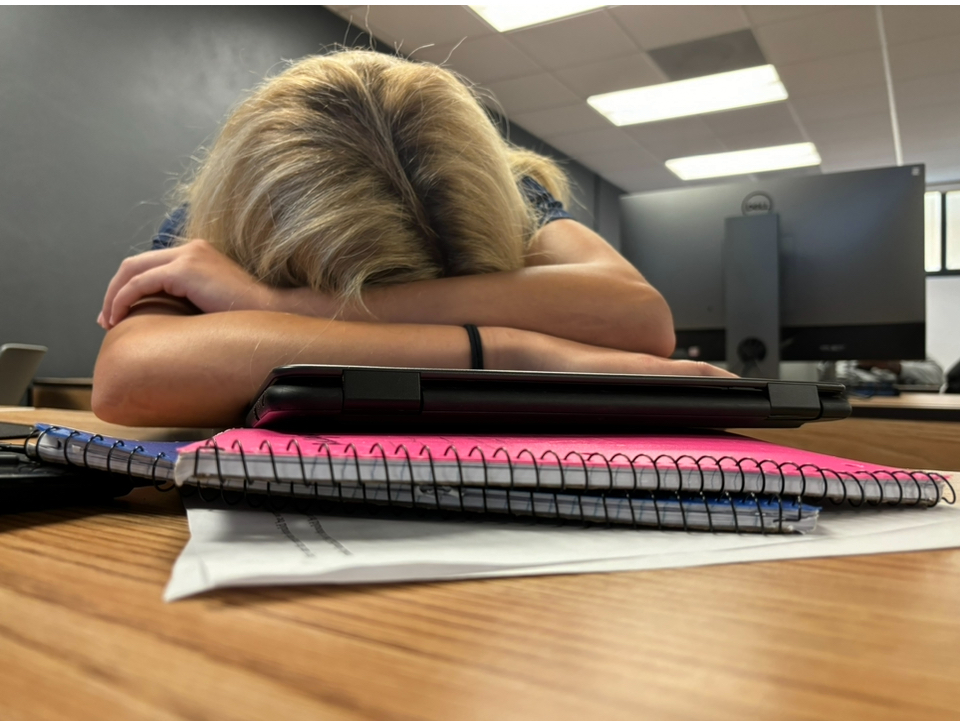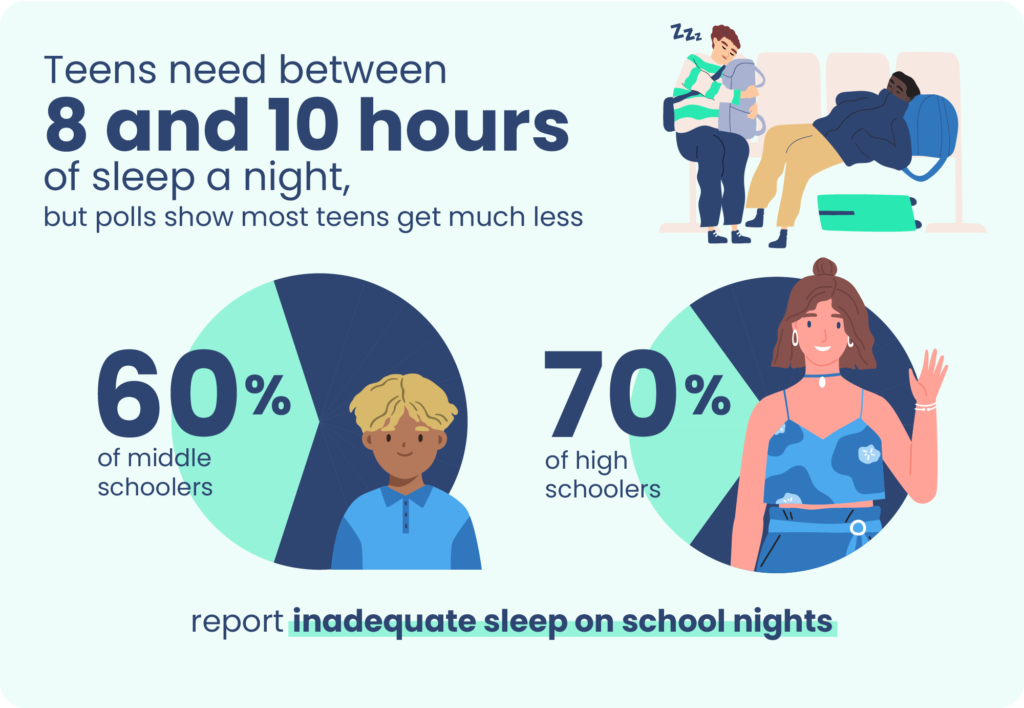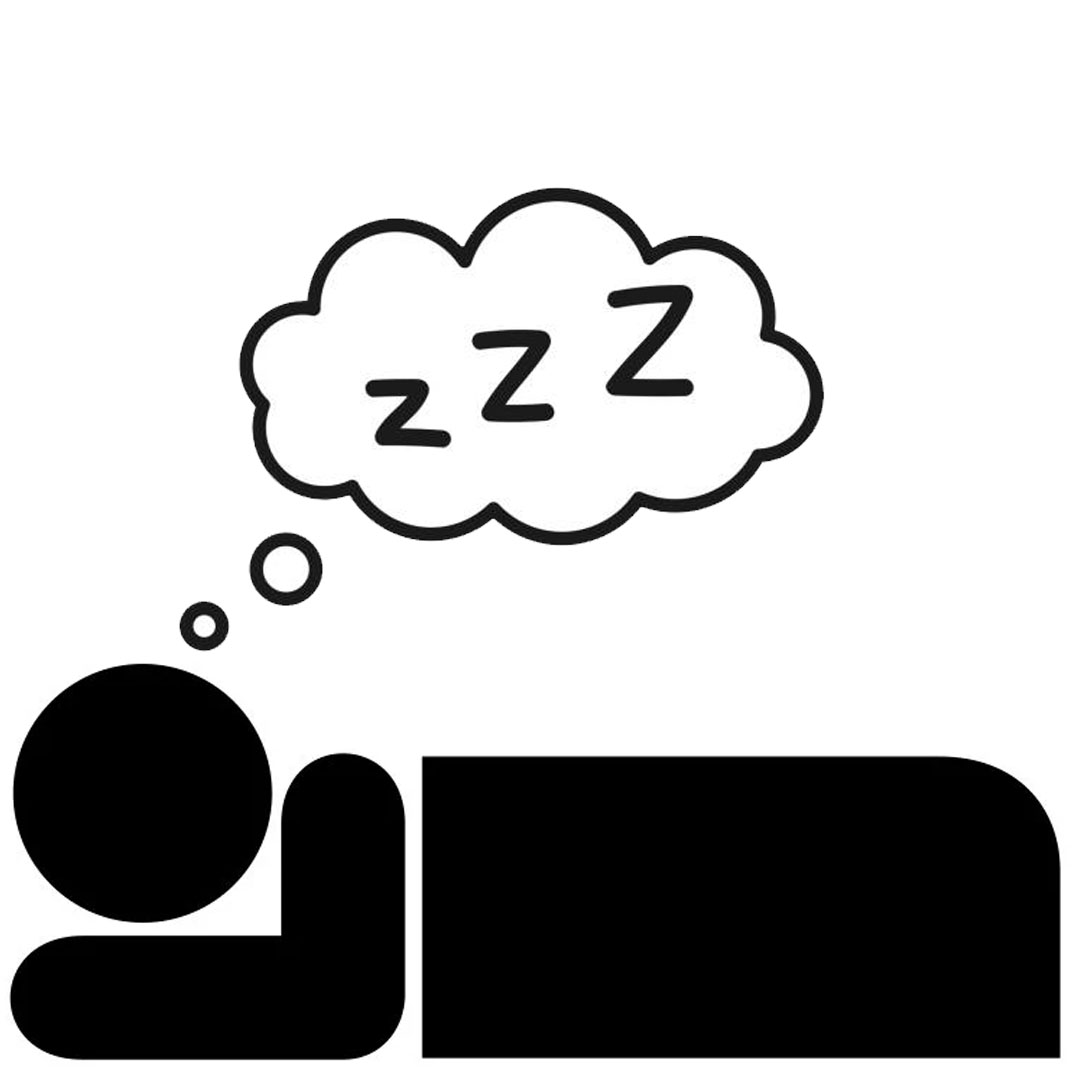According to the National Institute of Health, sleep is one of the most important necessities in life. Sleep rests the mind and lets the whole body recuperate. Making an effort to get at least eight hours of sleep every night can be highly beneficial to all people, including students and older adults. During the process of sleeping, people have a different state of consciousness along with limited interaction. When people are asleep, you may think that everything in the body is not active but that is very wrong; the brain is still very much active. Sleep also helps with the ability to fight diseases.
The University of Michigan reports that teenagers need around 8-10 hours of sleep in order to properly function, grow, and aid the immune system in fighting off diseases. Not getting a sufficient amount of sleep causes sleep deprivation. Sleep deprived people are not able to concentrate properly, don’t have good memory, or are unable to make the correct decisions. Some people may argue that they are fine with only 5-6 hours of sleep but this is not true. According to the National Council on Aging, over a third of Amercians get less than seven hours of sleep. This means that a lot of Americans have insomnia that eventually affects them throughout their day.
There are many ways that students can improve their quality and quantity of sleep. First, they need to make a sleep schedule to get a sufficient amount of sleep. Setting a specific range of time that they must go to sleep greatly helps with meeting sleep goals. Next, exercising throughout the day and being active significantly increases how easy it is to fall asleep, along with improving the quality of the sleep itself. The University of Michigan adds that going to bed hungry, eating too much, or drinking too much caffeine can cause discomfort and that will most likely keep you awake during the night, making it difficult to sleep.
Students need sleep in order to be successful in school. Although it is important to get enough sleep, there are many reasons why students don’t, such as clubs or sports. For example, student athletes have practice after school, whether it is for their school or for club, sometimes even both. By the time they get home and start their nightly routine, they may be physically exhausted. They get ready to hop into bed, but then remember that they have a lot of homework to complete— shifting the time that they go to sleep and limiting the amount of sleep they get. This tiredness may follow into the next day, causing lack of focus and possibly leading them to miss important information, increasing their homework workload. To help prevent this spiral of sleep deprivation, students can develop a disciplined schedule to stay on task and get to bed on time!









